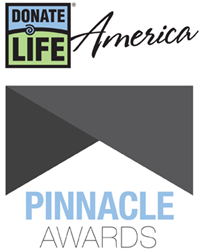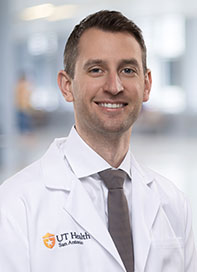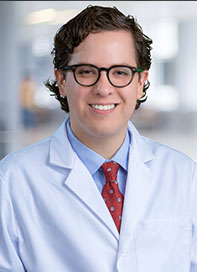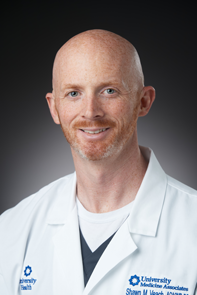Save a person’s life by becoming a living kidney or liver donor at University Health in San Antonio. Your donation helps our patients in need of transplantation.
We are recognized as leaders in the field of pediatric living donor transplants. In 2022, University Transplant Institute performed more living donor kidney transplants on children than any other transplant institute in the nation.
Donate Life America Pinnacle Award
In 2023, University Transplant Institute's Champion for Life program earned the Pinnacle Award for Living Donation. This national recognition proves our dedication to living donor transplantation and inspiring other health centers to create similar programs.
What Is Living Organ Donation?
Most organ donations come from donors who have died. Living organ donations come from a person who is alive and wants to donate an organ to someone who needs a transplant — usually a family member or close friend. Some people choose to donate to someone they do not know.
Living Donor Need
Receiving a living donation is the quickest way for a University Health patient to get a kidney or liver transplantation. That’s because there are not enough deceased donors to match the number of people on the transplant waiting lists. And every year, transplant waiting lists get longer.
How to Become a Living Donor
Deciding to become a living donor is a personal decision. Count on the transplant team at University Health to answer your questions, address your concerns and support your decision.
Learn if you’re eligible to be a donor and how to take the step to become a living kidney donor or living liver donor at University Transplant Institute.
Benefits of Living Organ Donation
Giving a second chance at life to another person is the most significant benefit of making a living donation. Discover the other advantages for you and the recipient:
Donor
- Connections with other donors through online communities
- Positive feelings (happiness, reward or satisfaction) from knowing you helped your recipient improve their health
- Saves two lives: The recipient and the next person on the deceased-donor organ waiting list
- Sense of pride and boost in self-esteem for acting with compassion and generosity toward another person
Recipient
- Faster recovery after transplantation surgery
- Fewer post-transplant complications
- Longer-lasting organ when compared with deceased-donor organs
- Shorter wait time to receive a transplant as opposed to the national waiting list
Making the Decision to Donate
Living donation is entirely voluntary. The decision is not always easy. You make the final decision about whether you want to become a living organ donor. And you have the right to stop the process any time before the donation.
Deceased Donor Registration
Even if you decide not to be a living organ donor, you can register to be a deceased donor.



